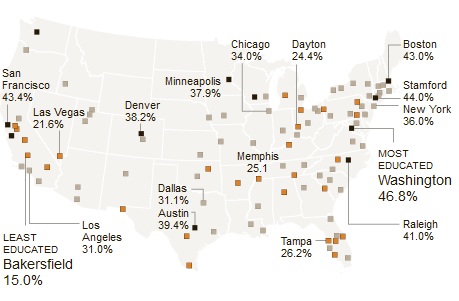Dear Commons Community,
Big data and web-analytics continue to capture the attention of corporations, government and education. The Chronicle of Higher Education has a brief announcement about a new Big Data Center being established at the M.I.T. As reported in the Chronicle:
“The Massachusetts Institute of Technology today announced a research initiative to tame so-called Big Data, sets of information that are so complex and fast-growing that they defy traditional methods of analysis. Examples are the data involved in online financial transactions of major banks or collected by social networks.
Key to the effort will be the creation of the Intel Science and Technology Center for Big Data, which will reside at MIT’s Computer Science and Artificial Intelligence Laboratory. The computer-chip maker Intel will contribute $2.5-million per year for up to five years to support the research center. The lab also plans to work with other companies, including AIG, EMC, SAP, and Thomson Reuters, in the project.”
This is a most interesting field of study for a host of disciplines including computer science, engineering, mathematics, statistics, sociology, and education.
Tony




